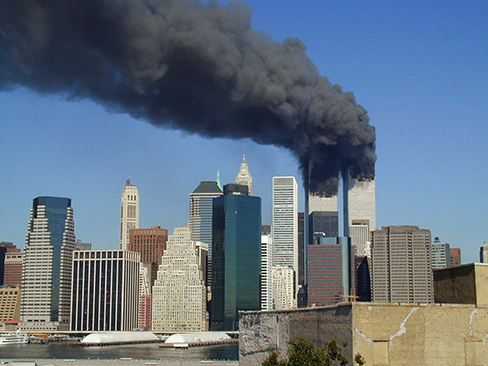| << Chapter < Page | Chapter >> Page > |
There also appear to be specific neurotransmitters involved with the process of memory, such as epinephrine, dopamine, serotonin, glutamate, and acetylcholine (Myhrer, 2003). There continues to be discussion and debate among researchers as to which neurotransmitter plays which specific role (Blockland, 1996). Although we don’t yet know which role each neurotransmitter plays in memory, we do know that communication among neurons via neurotransmitters is critical for developing new memories. Repeated activity by neurons leads to increased neurotransmitters in the synapses and more efficient and more synaptic connections. This is how memory consolidation occurs.
It is also believed that strong emotions trigger the formation of strong memories, and weaker emotional experiences form weaker memories; this is called arousal theory (Christianson, 1992). For example, strong emotional experiences can trigger the release of neurotransmitters, as well as hormones, which strengthen memory; therefore, our memory for an emotional event is usually better than our memory for a non-emotional event. When humans and animals are stressed, the brain secretes more of the neurotransmitter glutamate, which helps them remember the stressful event (McGaugh, 2003). This is clearly evidenced by what is known as the flashbulb memory phenomenon.
A flashbulb memory is an exceptionally clear recollection of an important event ( [link] ). Where were you when you first heard about the 9/11 terrorist attacks? Most likely you can remember where you were and what you were doing. In fact, a Pew Research Center (2011) survey found that for those Americans who were age 8 or older at the time of the event, 97% can recall the moment they learned of this event, even a decade after it happened.

Even flashbulb memories can have decreased accuracy with the passage of time, even with very important events. For example, on at least three occasions, when asked how he heard about the terrorist attacks of 9/11, President George W. Bush responded inaccurately. In January 2002, less than 4 months after the attacks, the then sitting President Bush was asked how he heard about the attacks. He responded:
I was sitting there, and my Chief of Staff—well, first of all, when we walked into the classroom, I had seen this plane fly into the first building. There was a TV set on. And you know, I thought it was pilot error and I was amazed that anybody could make such a terrible mistake. (Greenberg, 2004, p. 2)
Contrary to what President Bush recalled, no one saw the first plane hit, except people on the ground near the twin towers. The first plane was not videotaped because it was a normal Tuesday morning in New York City, until the first plane hit.
Some people attributed Bush’s wrong recall of the event to conspiracy theories. However, there is a much more benign explanation: human memory, even flashbulb memories, can be frail. In fact, memory can be so frail that we can convince a person an event happened to them, even when it did not. In studies, research participants will recall hearing a word, even though they never heard the word. For example, participants were given a list of 15 sleep-related words, but the word “sleep” was not on the list. Participants recalled hearing the word “sleep” even though they did not actually hear it (Roediger&McDermott, 2000). The researchers who discovered this named the theory after themselves and a fellow researcher, calling it the Deese-Roediger-McDermott paradigm.
Beginning with Karl Lashley, researchers and psychologists have been searching for the engram, which is the physical trace of memory. Lashley did not find the engram, but he did suggest that memories are distributed throughout the entire brain rather than stored in one specific area. Now we know that three brain areas do play significant roles in the processing and storage of different types of memories: cerebellum, hippocampus, and amygdala. The cerebellum’s job is to process procedural memories; the hippocampus is where new memories are encoded; the amygdala helps determine what memories to store, and it plays a part in determining where the memories are stored based on whether we have a strong or weak emotional response to the event. Strong emotional experiences can trigger the release of neurotransmitters, as well as hormones, which strengthen memory, so that memory for an emotional event is usually stronger than memory for a non-emotional event. This is shown by what is known as the flashbulb memory phenomenon: our ability to remember significant life events. However, our memory for life events (autobiographical memory) is not always accurate.
Describe a flashbulb memory of a significant event in your life.

Notification Switch
Would you like to follow the 'Psychology' conversation and receive update notifications?